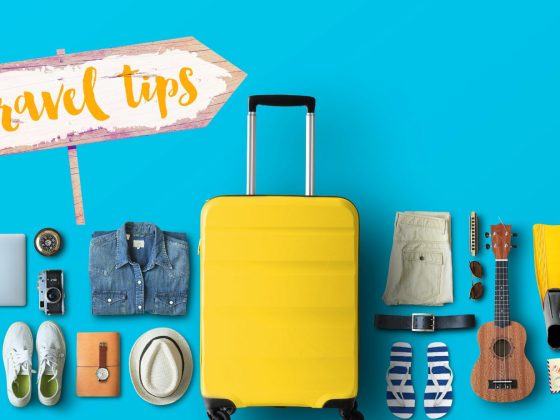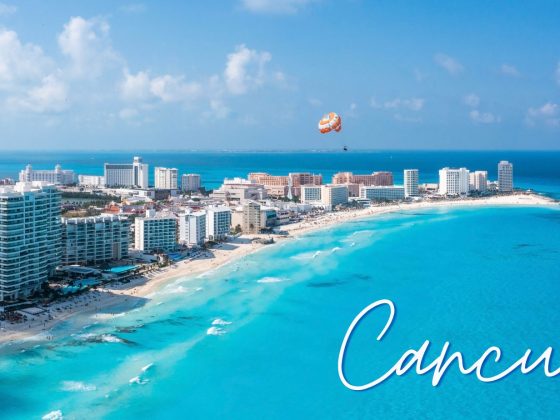Traveling can be one of the most exciting experiences, but planning a trip can also feel overwhelming. With so many websites, blogs, and social media accounts offering travel tips, it’s hard to know who to trust. That’s why finding Reliable Travel Advice is crucial for ensuring smooth and enjoyable journeys. Whether you’re a seasoned traveler or planning your first big adventure, knowing where to look for accurate and trustworthy information can save you time, money, and headaches down the road.
In this article, we’ll walk you through practical ways to find dependable travel advice and avoid misleading or outdated tips. From using official sources to tapping into reputable travel communities, we’ll explore simple yet effective approaches that will help you plan with confidence. So, if you’re ready to travel smarter and stress less, let’s dive into where you can find the most reliable sources to guide your next trip.
Why Reliable Travel Advice Matters
In today’s digital world, it’s easy to get overwhelmed by the sheer volume of travel information available online. But not all of it is helpful—or even accurate. That’s why seeking out Reliable Travel Advice is more important than ever. Good advice can help shape your entire travel experience, from the moment you start planning to the time you return home. It’s not just about choosing the right destination—it’s about making sure every step of your journey is informed, safe, and enjoyable.
Here’s why relying on accurate travel advice really matters:
-
Safety and Security:
Knowing about local laws, political climates, health alerts, and high-risk areas can keep you out of danger. Trusted sources will offer up-to-date safety tips that help you avoid scams, unsafe neighborhoods, or natural disaster-prone regions. -
Budget and Spending:
Reliable travel tips can help you plan and stick to a realistic budget. Whether it’s finding affordable accommodations, low-cost transportation, or knowing the best times to visit for deals, trusted advice saves you money and prevents overspending on tourist traps. -
Time-Saving Planning:
With so many options out there, it’s easy to waste time researching things that may not be relevant. Reliable advice filters out the noise and focuses on what truly matters—like the best attractions, local customs, and optimal ways to get around. -
Better Experiences:
Reliable recommendations lead you to authentic local experiences, not just the over-hyped spots. These tips help you explore hidden gems, eat where the locals eat, and engage in cultural practices respectfully—things you won’t always find in sponsored content or ads. -
Emergency Readiness:
Trusted travel advice often includes contingency plans—like what to do if you lose your passport, fall ill, or need help in a foreign country. Knowing where to turn in an emergency can make a stressful situation much easier to manage. -
Confidence and Peace of Mind:
When you know you’ve planned your trip using dependable resources, you travel with more confidence. You’re less likely to panic if things go off track because you’ve already prepared using advice that’s practical and realistic.
In short, Reliable Travel Advice acts like a safety net for your trip. It doesn’t mean you’ll avoid every hiccup, but it does mean you’ll be better prepared, make smarter choices, and ultimately enjoy a more relaxed and rewarding travel experience.
Understanding What Makes Travel Advice Reliable
With so much travel content floating around—from blog posts and Instagram reels to online forums—it’s important to know how to separate helpful advice from misleading or outdated information. Not all travel tips are created equal, and blindly following the wrong source can lead to wasted time, money, or even unsafe situations. So, what exactly makes Reliable Travel Advice stand out from the rest?
Here are the key qualities to look for:
1. Source Credibility
A trustworthy source usually has a proven track record and a strong reputation in the travel industry. This includes:
-
Well-established travel websites (like Lonely Planet, Fodor’s, or Rick Steves)
-
Bloggers or influencers with years of consistent content and real travel experience
-
Official tourism boards or government travel departments
Tip: Look for an “About” page or media credentials that show who’s behind the advice and why they’re qualified to give it.
2. Updated Information
Travel rules, prices, and safety conditions can change quickly. Reliable travel advice should be up-to-date to reflect:
-
Current visa requirements and travel restrictions
-
Recent changes in public transportation, accommodation, or local laws
-
The latest currency exchange rates and COVID-19 protocols
What to check:
Look for a “last updated” date on the article or video, especially for destination guides or how-to content.
3. Balanced and Honest Opinions
If advice only tells you the good stuff, it might be biased or sponsored. Reliable sources present a full picture, including:
-
Pros and cons of visiting a certain place
-
Challenges or risks (e.g., tourist scams, weather issues, accessibility)
-
Honest feedback, not just promotions
Tip: Be cautious of reviews or posts that seem overly positive without mentioning any drawbacks—it may be an ad in disguise.
4. Transparency and Disclosure
Good travel advice is clear about any affiliations or sponsorships. Reputable bloggers and websites will disclose if they were paid for a stay or received free services.
Why this matters:
Knowing the difference between a genuine recommendation and a paid promotion helps you decide what advice to trust.
5. User Reviews and Community Validation
Advice backed by real users or large travel communities tends to be more reliable. Look for:
-
Verified guest reviews on platforms like Booking.com or TripAdvisor
-
Upvoted responses in forums like Reddit or Stack Exchange
-
Reader comments that add more context or updates
Pro Tip: If many travelers agree on something—like a hotel being noisy or a tour being overpriced—it’s probably true.
6. Clear, Practical Details
Reliable advice doesn’t just tell you what to do—it tells you how to do it. Look for content that:
-
Breaks down the steps (e.g., “how to get from the airport to city center”)
-
Shares maps, price ranges, travel times, and opening hours
-
Offers alternative options (e.g., budget vs. luxury experiences)
Vague tips like “just explore the area” or “you must try the local food” are nice, but they aren’t enough to help you plan well.
Where to Find Reliable Travel Advice
When it comes to planning a trip, the quality of the information you rely on can make or break your experience. Below are the most trusted places to find Reliable Travel Advice that is accurate, up-to-date, and tailored to real traveler needs. Think of these as your go-to resources for every step of your travel journey—from initial inspiration to landing back home.
1. Official Government and Tourism Websites
Government and tourism board websites are usually your most reliable first stop. These sites are maintained by official authorities, so the information is accurate, unbiased, and regularly updated.
Why they’re trustworthy:
-
Provide real-time safety advisories, weather alerts, and visa regulations
-
Detail local customs, emergency contacts, and health information (such as required vaccinations or pandemic guidelines)
-
Offer transportation details, currency information, and local laws to help you prepare
Examples:
-
U.S. Department of State – Safety warnings, passport info, country-specific advice
-
UK Foreign Travel Advice – Legal requirements, travel warnings, entry rules
-
VisitBritain or Australia.com – Destination guides, events, and tips
Using these sources ensures that your plans align with current rules and local regulations.
2. Reputable Travel Blogs and Websites
Independent travel blogs and large travel content platforms often come with the advantage of firsthand experience. They offer practical tips that aren’t just pulled from tourist brochures but come from people who’ve actually been there.
What to look for:
-
Detailed itineraries, budgeting tips, and do’s and don’ts
-
Honest opinions with pros and cons, not just “highlight reels”
-
Posts that mention when the content was last updated
Top picks:
-
Lonely Planet – Destination overviews, maps, practical advice
-
Nomadic Matt – Budget travel tips and cultural insights
-
The Blonde Abroad – Female-focused travel advice with beautiful visuals and in-depth reviews
Always double-check dates on posts and read a variety of blogs to balance perspectives.
3. Travel Forums and Online Communities
Sometimes, the best travel advice comes from people just like you—fellow travelers who’ve been where you’re going. Forums and communities offer real-life insights that can be more honest and up-to-date than commercial travel content.
Why they’re valuable:
-
You can ask specific, personalized questions and get answers from people with firsthand knowledge
-
Real discussions on hidden gems, current conditions, or recent travel hacks
-
Variety of voices and experiences help balance out opinions
Try these platforms:
-
Reddit’s r/travel – Open discussions and destination-specific threads
-
TripAdvisor Forums – Traveler Q&A with hotel, activity, and restaurant reviews
-
Travel Stack Exchange – Expert-style Q&A for specific travel scenarios
Just remember to always verify information from forums with a second reliable source.
4. Travel Apps and Booking Platforms
Mobile apps are convenient tools that often go beyond booking. They gather millions of user-generated reviews and data to help travelers make smart decisions in real time.
What makes them reliable:
-
Reviews from verified users after their stay or experience
-
Features like “most booked,” “best value,” or “guest favorite” to guide decisions
-
Useful tools like map integrations, customer service, and price comparisons
Best for travelers:
-
Booking.com – Accommodation with detailed guest reviews and local highlights
-
Airbnb – Insights into neighborhoods and local experiences through Superhost profiles
-
Google Travel – Comprehensive planning hub for hotels, flights, attractions, and itineraries
Using these apps helps you adapt on the go and make informed decisions on accommodations, dining, and things to do.
5. Social Media with Caution
Social media is packed with beautiful travel photos and viral videos—but not all of it qualifies as Reliable Travel Advice. The key is knowing how to filter inspiration from actual planning material.
How to use it wisely:
-
Use Instagram for visual inspiration, but confirm locations, hours, and prices via official sites
-
Follow experienced travel creators who post realistic, well-captioned advice
-
Watch YouTube channels with in-depth destination guides, not just highlight reels
Suggested creators:
-
The Points Guy – Great for flight and loyalty program tips
-
Kara and Nate – Long-term travel vloggers who show realistic budget and logistics
-
Fearless and Far – Adventure travel with cultural insights
If it seems too perfect to be true, it probably is—use social media for ideas, but always verify the details.
6. Travel Guidebooks
Sometimes the old-school methods still work best. Guidebooks from reputable publishers are written by travel experts and often undergo multiple rounds of fact-checking.
Why they’re still relevant:
-
Reliable for offline use—great when you’re in remote areas with no internet
-
Curated itineraries based on themes like culture, food, or family travel
-
Written by professionals with deep knowledge of the region
Recommended publishers:
-
Lonely Planet – Thorough destination coverage and useful maps
-
Rough Guides – Candid reviews and deep cultural content
-
Fodor’s – Family-friendly and practical planning tools
These are perfect for travelers who like to prepare ahead of time and prefer tangible resources.
Tips for Verifying Travel Advice
With so much information out there, verifying what you read is key. Here’s how to double-check the reliability of travel advice:
-
Cross-reference multiple sources: Don’t rely on one source alone; compare information across official websites, community forums, and reputable travel blogs.
-
Check publication dates: Make sure the advice is recent to avoid outdated travel recommendations.
-
Read user reviews: Authentic traveler reviews can highlight current conditions and hidden gems.
-
Look for official endorsements: Certifications or partnerships with recognized tourism organizations boost credibility.
By following these steps, you’ll feel confident that your travel plans are built on solid information.
Red Flags to Watch Out For
Not all travel advice is trustworthy. Here are some warning signs that signal unreliable information:
-
No clear author or contact details
-
Unverified claims or sensationalized content
-
Overly positive reviews without mentioning any drawbacks
-
Outdated content with no recent updates
-
Excessive sponsored content with biased recommendations
If something feels too good to be true or lacks transparency, it’s best to seek additional verification.
Making the Most of Reliable Travel Advice
Once you’ve gathered solid information, use these tips to make the most out of your findings:
-
Create a flexible itinerary: Leave room for unexpected discoveries while using reliable tips as a foundation.
-
Prepare for contingencies: Research alternative accommodations or transport options in case plans change.
-
Respect local customs: Trusted travel advice often includes etiquette tips to help you blend in and respect local culture.
-
Stay updated on travel advisories: Check official government sites right before your trip for any last-minute safety updates.
Building your travel plans around reliable insights not only enhances your trip but also adds peace of mind.
Conclusion
In a world overflowing with travel information, finding Reliable Travel Advice is essential for planning stress-free trips that live up to your expectations. By sticking to credible sources such as official tourism websites, respected travel blogs, guidebooks, and trusted online communities, you can ensure that your travel plans are both well-informed and up-to-date. Taking the time to verify what you read and staying alert to potential red flags will help you avoid common travel missteps and give you the freedom to fully enjoy your adventures.
Whether you’re planning a weekend getaway or a month-long journey, reliable advice is the key to unlocking smooth and unforgettable travel experiences. So, use these tips to find information you can trust, and get ready to explore with confidence while making incredible memories along the way.






